
Find Help
More Items From Ergsy search
-
Can HIV be transmitted through blood transfusions?
Relevance: 100%
-
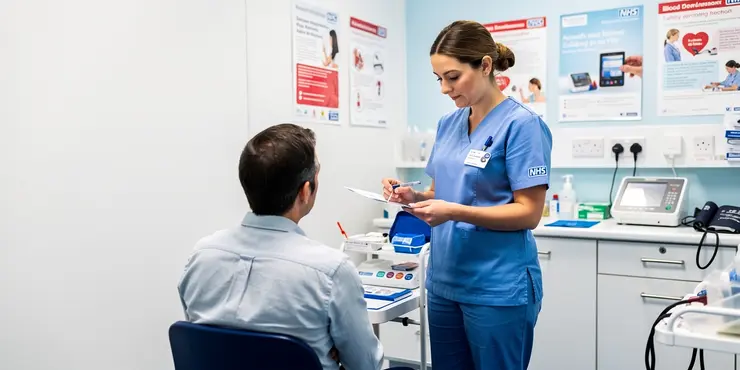
What measures are taken to prevent disease transmission in blood transfusions?
Relevance: 81%
-

What diseases can be spread by blood transfusions?
Relevance: 79%
-
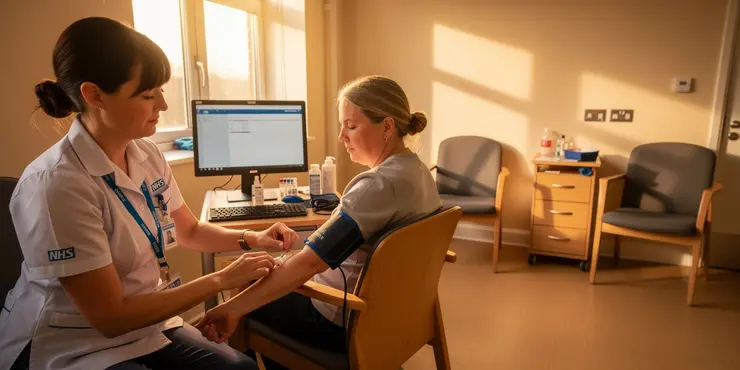
How is blood screened to prevent disease transmission?
Relevance: 79%
-
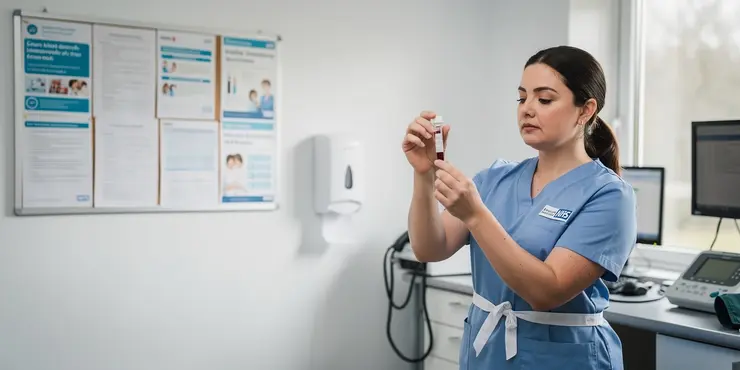
What is the most common disease transmitted by blood transfusion?
Relevance: 72%
-
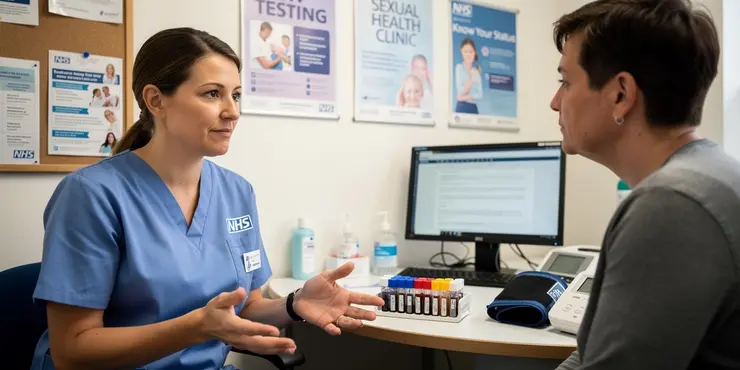
How is HIV transmitted?
Relevance: 69%
-
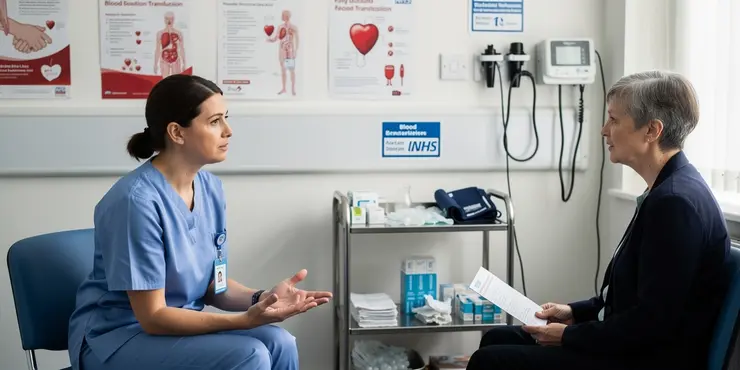
Is HTLV a risk in blood transfusions?
Relevance: 67%
-
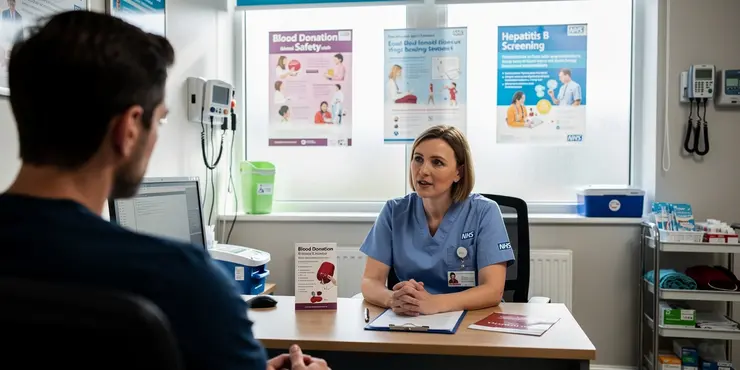
Is Hepatitis B a risk in blood transfusions?
Relevance: 65%
-
Blood Product Transfusions
Relevance: 65%
-
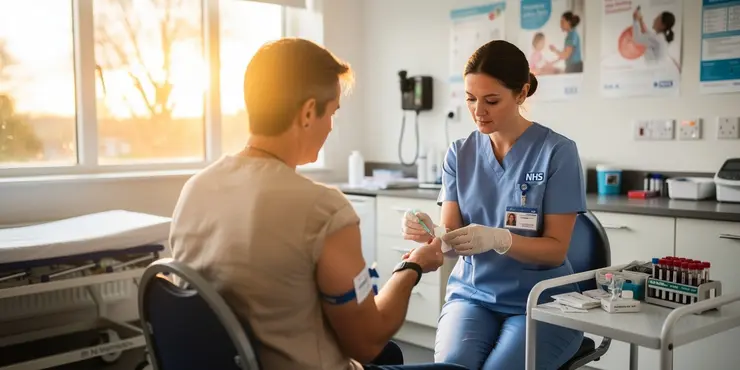
Is Chagas disease a concern with blood transfusions?
Relevance: 64%
-
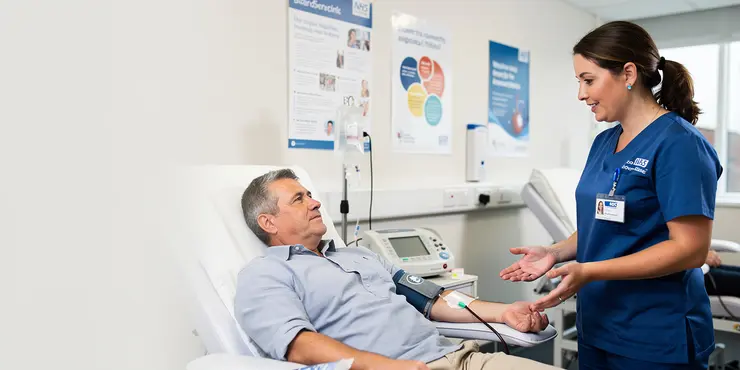
Are there any parasites that can be transmitted through blood transfusions?
Relevance: 64%
-
Can Dengue fever be transmitted through blood transfusions?
Relevance: 64%
-
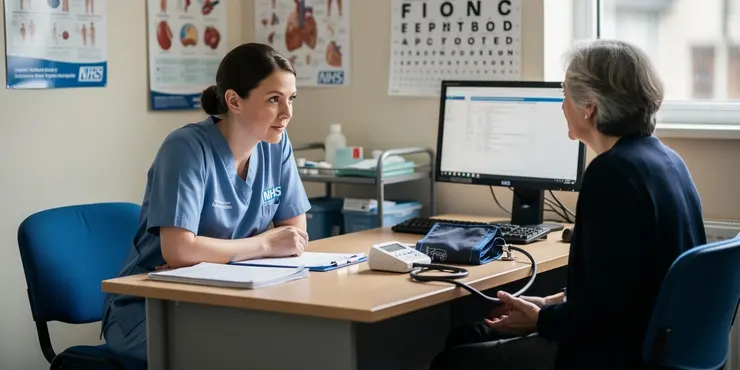
Can syphilis be transmitted via blood transfusion?
Relevance: 64%
-
Is malaria still a concern for blood transfusion safety?
Relevance: 63%
-
Is Zika virus screened for in blood transfusions?
Relevance: 63%
-
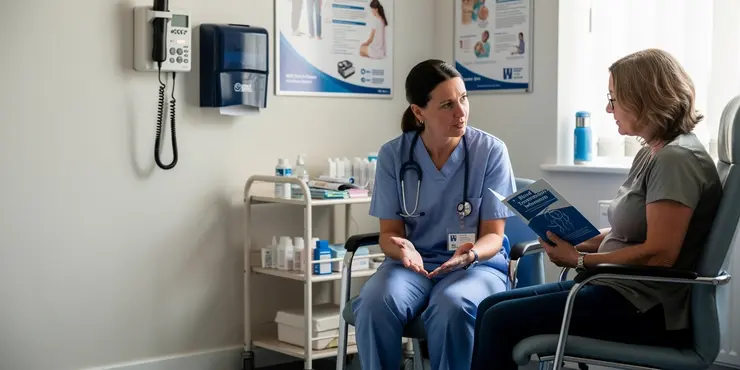
Are there risks associated with blood transfusions?
Relevance: 63%
-
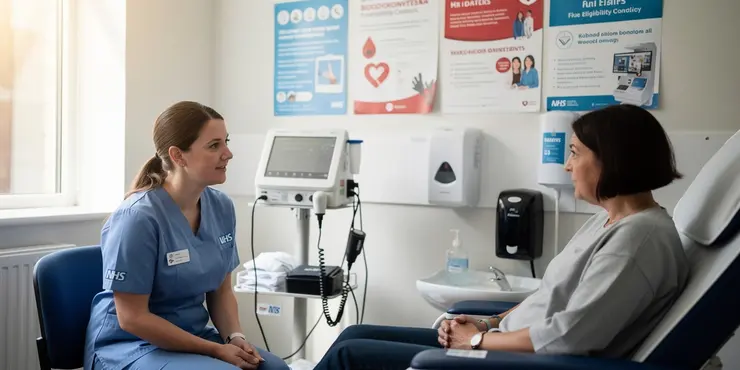
Can COVID-19 be transmitted through blood transfusions?
Relevance: 62%
-
What is a blood transfusion?
Relevance: 61%
-
Can bacterial infections be transmitted through blood transfusion?
Relevance: 61%
-
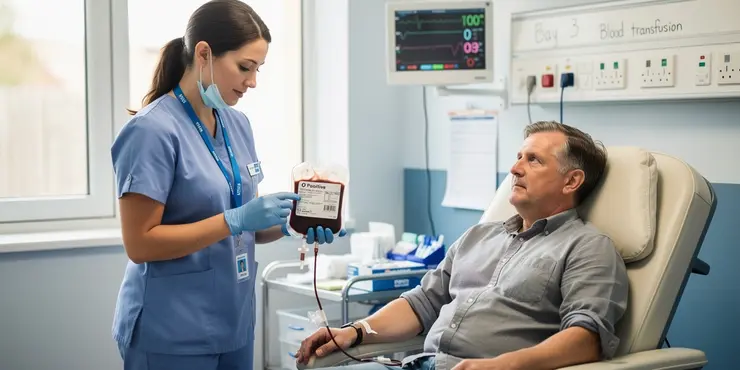
Blood Transfusion
Relevance: 59%
-
Can you get any prion diseases from blood transfusion?
Relevance: 58%
-
Is there an age limit for receiving blood transfusions?
Relevance: 56%
-
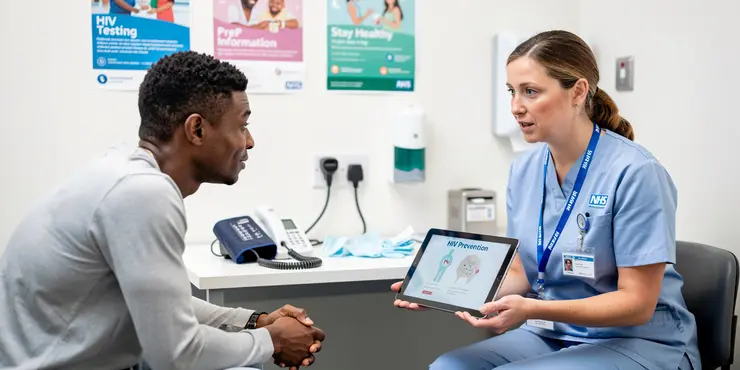
How can HIV be prevented?
Relevance: 55%
-
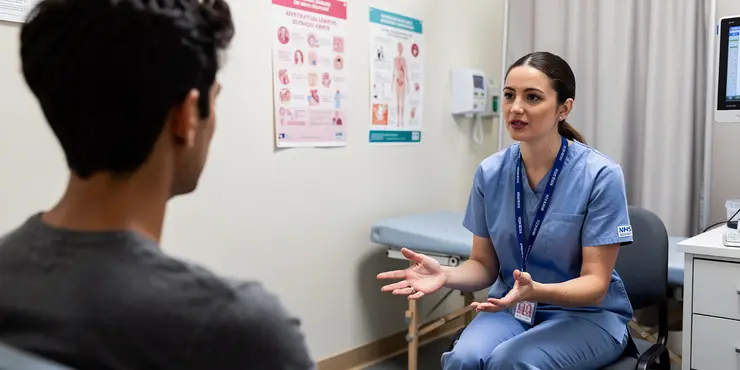
What is HIV?
Relevance: 55%
-
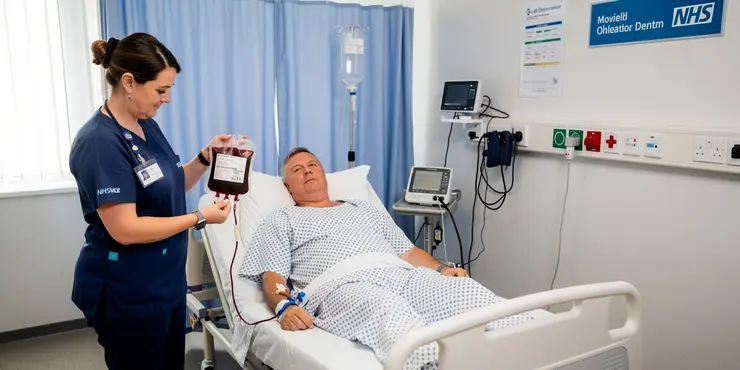
What types of blood products can be transfused?
Relevance: 55%
-
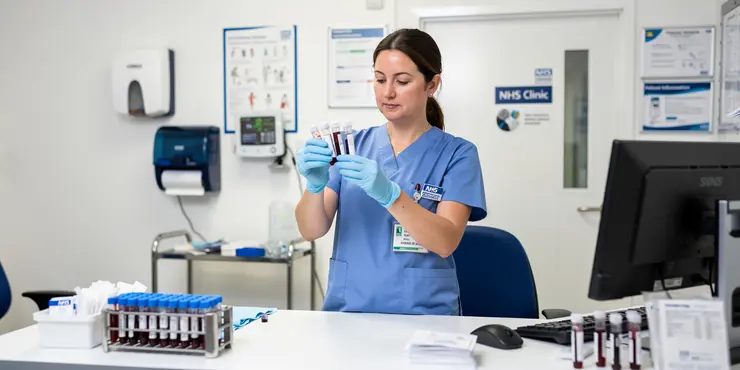
What other viruses are tested for in blood donations?
Relevance: 55%
-
Why might someone need a blood transfusion?
Relevance: 55%
-
How long does a blood transfusion take?
Relevance: 54%
-
What are some common reasons blood transfusions are needed?
Relevance: 53%
-
Can someone have a reaction to a mismatched blood transfusion?
Relevance: 53%
-
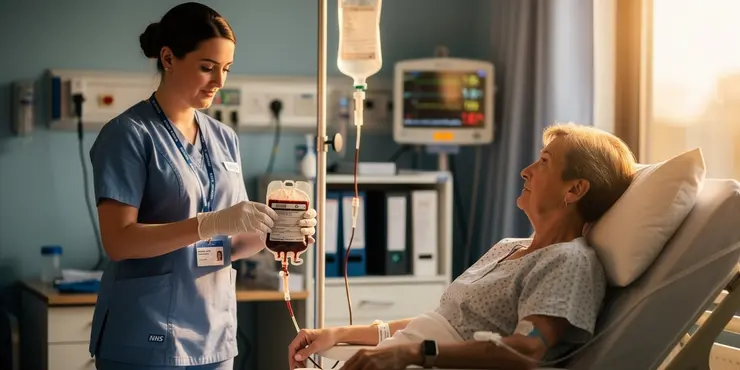
Can cytomegalovirus (CMV) be spread through transfusions?
Relevance: 53%
-
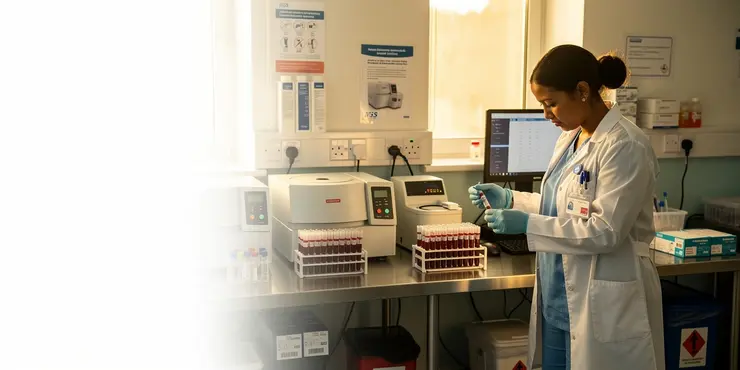
How do healthcare providers match blood for transfusions?
Relevance: 52%
-
Can people of any blood type receive a transfusion of any blood type?
Relevance: 52%
-
Can certain medical conditions prevent receiving blood transfusions?
Relevance: 51%
-

Can HIV be transmitted through insect bites?
Relevance: 50%
-

HIV and pregnancy | NHS
Relevance: 50%
-
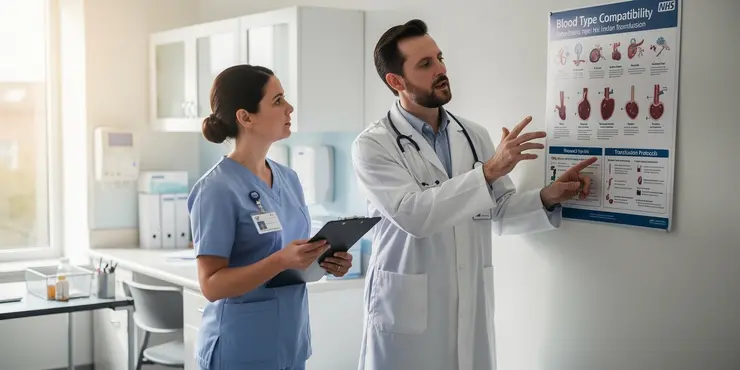
How do doctors determine how much blood is needed for a transfusion?
Relevance: 50%
-
Why is blood donation history important in preventing disease transmission?
Relevance: 49%
-
Is blood used for transfusions safe?
Relevance: 49%
-

Is it safe for a partner of someone with HIV to have children?
Relevance: 47%
Understanding HIV Transmission Through Blood Transfusions
Human Immunodeficiency Virus (HIV) is a significant public health concern globally. One of its primary transmission methods is through contact with infected blood. In the early years of the HIV epidemic, blood transfusions were a notable source of HIV transmission. However, advancements in medical screening and testing have significantly reduced this risk.
Screening and Safety Measures in the UK
In the United Kingdom, strict guidelines ensure the safety of blood transfusions. Since 1985, all donated blood in the UK has been rigorously screened for HIV. Donors undergo thorough health assessments and are questioned about potential risk factors before their blood is accepted. Additionally, each donation is tested for HIV antibodies and nucleic acids, which are highly sensitive methods for detecting HIV presence.
The implementation of these measures has made the risk of acquiring HIV through blood transfusions exceptionally low. The UK's National Health Service (NHS) Blood and Transplant estimates that the risk of contracting HIV from a blood transfusion is less than one in several million. This remarkable safety level is largely attributed to sophisticated testing technologies and robust donor screening processes.
Risk Factors and Prevention
Although the risk of HIV transmission via blood transfusions is minimal, certain factors could potentially compromise safety. These include system errors, window periods in HIV detection, or rare mutations of the virus that may evade current testing techniques. However, continuous advancements in screening technology and diligent safety protocols decrease these risks even further.
To maintain blood safety, continuous research and updating of testing protocols are critical. Developing technologies like pathogen reduction and inactivation treatments are being studied and implemented to further enhance the safety of blood products.
Conclusion and Public Confidence
The successful minimization of HIV transmission risk through blood transfusions in the UK demonstrates the effectiveness of current healthcare policies and practices. Public confidence in the safety of blood transfusions is a testament to the rigorous safety protocols in place. These measures ensure that both donors and recipients are protected to the greatest extent possible.
Ultimately, while the theoretical risk cannot be entirely eliminated, the current procedures for blood donation and transfusion in the UK provide a much safer environment compared to the early days of the HIV epidemic. It is crucial for the public to remain informed about the safety measures and advancements in science that continue to protect recipients of blood transfusions from infections like HIV.
Understanding How HIV Can Spread Through Blood Transfusions
HIV is a virus that can make people very sick. It is a big health worry all over the world. One way people can get HIV is through blood transfusions with blood that has the virus. In the past, this was a common way to get HIV. But now, doctors have better tests to check blood. This means it is much safer today.
Making Blood Transfusions Safe in the UK
In the UK, there are strict rules to make sure blood transfusions are safe. Since 1985, every drop of blood given in the UK is checked for HIV. People who want to donate blood are asked questions to make sure they are healthy. The blood is tested to find any signs of HIV. These steps make it very unlikely to get HIV from blood in the UK.
The National Health Service (NHS) in the UK says the chance of getting HIV from donated blood is less than one in a million. This is because of the excellent tests and careful checks on people giving blood.
Staying Safe and Stopping Risk
Even though getting HIV from blood transfusions is very rare, there are still tiny risks. These could happen if something goes wrong or the virus changes in a way that makes it hard to find. But new technology and careful rules help make these risks even smaller.
Researchers are always looking for better ways to keep blood safe. New treatments are also being tried to make blood even safer.
Keeping Confidence and Feeling Safe
The UK has done a great job of making blood transfusions safe from HIV. This helps people trust the system and feel good about giving and receiving blood. All the careful steps mean donors and people who get blood are as safe as possible.
While there is always a very small chance, the steps taken today make blood transfusions much safer than they once were. It's important for everyone to know about the safety measures and how they protect us from HIV.
Frequently Asked Questions
Can HIV be transmitted through blood transfusions?
Yes, HIV can be transmitted through blood transfusions if the blood is contaminated with the virus.
How is the risk of HIV transmission through blood transfusions reduced?
The risk is reduced by rigorous screening and testing of blood donations for HIV.
Are blood transfusions safe in developed countries?
Yes, due to strict regulations and thorough testing, blood transfusions are generally safe in developed countries.
What tests are performed on blood donations to ensure they are free of HIV?
Blood donations are tested for HIV antibodies and nucleic acids to detect any presence of the virus.
Has the risk of HIV transmission through blood transfusions decreased over the years?
Yes, the risk has significantly decreased due to advances in testing and improved screening protocols.
Can HIV be transmitted through blood transfusions in undeveloped regions?
Yes, the risk is higher in areas where blood screening is not universally implemented or resources are limited.
What is the current risk of contracting HIV through a blood transfusion in the US?
The risk is extremely low, less than one in 1.5 million donations, due to stringent testing and screening.
Does receiving a blood transfusion mean I will get tested for HIV?
Receiving a transfusion does not automatically include an HIV test, but blood is screened prior to transfusion.
What is the infectious window period for HIV concerning blood donation?
The window period is around 9 to 11 days, after which HIV is detectable by nucleic acid tests.
Why is blood screened for HIV before transfusions?
Blood is screened to ensure it is safe for recipients and to prevent the transmission of HIV and other infections.
What happens if HIV is detected in donated blood?
If HIV is detected, the blood is discarded and the donor is notified and counseled.
Are all blood products screened for HIV?
Yes, all blood products including red cells, platelets, and plasma undergo screening for HIV.
Can HIV transmission through blood transfusions be completely ruled out?
While the risk is very low, no screening system is 100% foolproof but current systems are extremely reliable.
What measures are taken to ensure donated blood is not contaminated with HIV?
Donors complete health questionnaires, and blood is tested for HIV using sensitive assays.
Why might blood screening fail to detect HIV?
Failures can occur during the window period when the virus is present but undetectable by antibody tests.
What role do blood donation centers play in preventing HIV transmission?
Centers are responsible for screening donors, testing blood for HIV, and implementing safe collection practices.
Has there been technology advancement in detecting HIV in blood donations?
Yes, advancements like nucleic acid testing have greatly increased the ability to detect HIV earlier.
How often are blood donation screening protocols reviewed?
Screening protocols are regularly reviewed and updated in response to technological advances and new threats.
What organizations oversee blood screening processes?
In the United States, the FDA and similar bodies in other countries regulate and oversee blood screening processes.
How can I ensure my transfusion is safe from HIV?
Receive transfusions at accredited hospitals or centers that adhere to national screening guidelines.
Can you get HIV from a blood transfusion?
You might wonder if it is possible to get HIV, a virus that makes people sick, from a blood transfusion. A blood transfusion happens when a person is given blood from someone else.
Today, it is very rare to get HIV from a blood transfusion. This is because hospitals and doctors check the blood very carefully before using it. They make sure it is safe and does not have any germs or viruses like HIV.
If you have more questions, you can ask your doctor or nurse. They can help you understand more.
Yes, you can get HIV from a blood transfusion if the blood has the virus in it.
How do doctors make blood transfusions safer from HIV?
Doctors and hospitals have ways to make sure blood transfusions are safe.
They test the blood for HIV to make sure it is healthy. Blood donors are also asked questions to make sure they are healthy.
If you want to learn more, you can use tools like picture stories or videos. These tools can help you understand better.
Doctors are very careful to check and test blood donations for HIV. This helps make sure the blood is safe and lowers the chance of problems.
Is it safe to get blood from someone else in countries like the UK or USA?
Yes, it is safe. Doctors check the blood very carefully.
If you want help reading, you can:
- Ask someone to read it to you.
- Listen to it on a reading app.
Yes, blood transfusions are usually safe in countries with good healthcare. This is because there are rules and tests that make sure the blood is safe.
What checks are done on blood donations to make sure they do not have HIV?
When people give blood, doctors must make sure it is healthy and safe. They do special checks to see if the blood is okay. One of these checks helps to find out if there is something called HIV in the blood.
HIV is a virus that can make people very sick. So, this check is very important. By doing these checks, doctors can make sure the blood is safe for people who need it.
If you want to understand more, ask for help from an adult or look at books or videos made for kids. Pictures and simple words can help you learn easier.
Blood donations are checked for signs of HIV. This is to make sure the blood is safe.
Is it safer now to get blood from a hospital than it was before?
Doctors and scientists have worked hard to make blood safer. They have new tests to check the blood. This means there is less chance of getting HIV from blood now. If you want help to read this, you can use a tool that reads the words out loud or highlights the words as you read.
Yes, the risk is much lower now because we have better tests and checks.
Can you get HIV from blood transfusions in poor areas?
Let's find out if you can get HIV from blood transfusions in places that do not have a lot of money.
Tools to Help You Understand: - Use pictures to see what blood transfusions are. - Ask someone to explain tricky words.
Yes, the risk is higher in places where blood screening is not done for everyone, or there are not enough resources.
Can you get HIV from a blood transfusion in the US today?
If you get a blood transfusion in the US, the risk of getting HIV is very low.
Doctors and hospitals test all blood carefully to keep it safe.
If you have more questions, ask a doctor or a nurse.
The chance of a problem is very small, less than one in 1.5 million donations, because we check and test carefully.
If I get a blood transfusion, will they test me for HIV?
If you get blood from a donation, they test the blood first. This makes sure it does not have HIV. You do not need a test. The blood is safe because it is checked.
Tools to help:
- Ask your doctor if you want more information.
- Use picture cards to understand how blood transfusions work.
Before you get blood from someone else, they check it to make sure it's safe. But, you don't get an HIV test just because you get a blood transfusion.
When is it not safe to donate blood if you might have HIV?
The window period is about 9 to 11 days. After this, HIV can be found with special tests that look at the body's cells.
Why do we check blood for HIV before giving it to others?
We check blood for HIV to make sure it's safe. HIV is a virus that can make people very sick. Checking the blood helps keep everyone healthy.
It's important to always use safe blood. Doctors check the blood to protect us.
Here are some tools that can help:
- Ask a teacher or an adult if you have questions.
- Use picture books about health to learn more.
Blood is checked to make sure it is safe for people who need it. This helps stop the spread of diseases like HIV.
What if donated blood has HIV?
If donated blood has HIV, doctors do not use it. This is to keep people safe.
Help tools: Use pictures or videos to learn more. Ask a friend or family member to explain.
If HIV is found, the blood is thrown away. The person who gave the blood is told and given help.
Do doctors check all blood for HIV?
Yes, doctors check all blood for HIV to keep everyone safe.
It's important to make sure the blood is healthy.
If you want to know more, you can ask a doctor or nurse. They can help explain things.
Yes, all blood products like red cells, platelets, and plasma are checked for HIV.
Is it still possible to get HIV from a blood transfusion?
The chance of something going wrong is very small. No test is perfect, but today's tests work very well.
How do we make sure donated blood is safe from HIV?
Here is how we keep blood safe:
- Testing: We check all blood for HIV.
- Questions: We ask donors if they are healthy.
- Tools: We use clean needles and equipment.
If you want help with reading, you can try these:
- Read Aloud: Use apps that read text out loud.
- Highlighting: Use a bright pen to mark important words.
- Breaks: Take your time and read a little at a time.
People who give blood answer health questions. Their blood is checked for HIV with a special test.
Why might a blood test miss HIV?
Sometimes, a blood test might not find HIV. This can happen for a few reasons:
- The test is done too soon after someone gets HIV.
- The test might not be strong enough to find the virus.
It helps to ask a doctor for the best time to do another test. Support from family or friends can make it easier, too.
Sometimes, tests do not work because they are done too soon. The virus can be in the body, but the test cannot see it yet. This is called the "window period."
If you have trouble reading, you can try using tools to help. Audiobooks or apps that read text aloud can be useful. Picture dictionaries can also help you understand words better.
How do blood donation centers help stop the spread of HIV?
Centers check people who want to give blood. They make sure the blood is safe and does not have diseases like HIV. They also use safe ways to collect blood.
Is there new technology to find HIV in blood donations?
Yes, new tests like nucleic acid testing help us find HIV sooner.
How often do doctors check the rules for giving blood?
We often look at our safety rules. We change them when we get new tools or find new dangers.
Who makes sure blood tests are done right?
In the United States, there is a group called the FDA. They check and make sure blood is safe. Other countries have groups like the FDA that do the same thing.
How do I make sure my blood transfusion is safe from HIV?
It is important to stay safe when getting a blood transfusion. Here are some tips:
- Ask the doctor or nurse if the blood has been tested for HIV. They should always check the blood.
- Make sure you get your transfusion at a hospital or clinic. They have rules to keep you safe.
- If you have questions or feel worried, talk to your doctor or nurse.
If reading is hard, you can use tools to help:
- Text-to-speech apps can read the text out loud for you.
- Apps that make the words bigger can help you see them better.
Always ask for help if you are not sure about something. It’s okay to ask questions!
Get blood transfusions at good hospitals or centers. Make sure they check the blood properly and follow the country's safety rules.
Useful Links
This website offers general information and is not a substitute for professional advice.
Always seek guidance from qualified professionals.
If you have any medical concerns or need urgent help, contact a healthcare professional or emergency services immediately.
Some of this content was generated with AI assistance. We’ve done our best to keep it accurate, helpful, and human-friendly.
- Ergsy carfully checks the information in the videos we provide here.
- Videos shown by Youtube after a video has completed, have NOT been reviewed by ERGSY.
- To view, click the arrow in centre of video.
- Most of the videos you find here will have subtitles and/or closed captions available.
- You may need to turn these on, and choose your preferred language.
- Go to the video you'd like to watch.
- If closed captions (CC) are available, settings will be visible on the bottom right of the video player.
- To turn on Captions, click settings .
- To turn off Captions, click settings again.
More Items From Ergsy search
-
Can HIV be transmitted through blood transfusions?
Relevance: 100%
-

What measures are taken to prevent disease transmission in blood transfusions?
Relevance: 81%
-

What diseases can be spread by blood transfusions?
Relevance: 79%
-

How is blood screened to prevent disease transmission?
Relevance: 79%
-

What is the most common disease transmitted by blood transfusion?
Relevance: 72%
-

How is HIV transmitted?
Relevance: 69%
-

Is HTLV a risk in blood transfusions?
Relevance: 67%
-

Is Hepatitis B a risk in blood transfusions?
Relevance: 65%
-
Blood Product Transfusions
Relevance: 65%
-

Is Chagas disease a concern with blood transfusions?
Relevance: 64%
-

Are there any parasites that can be transmitted through blood transfusions?
Relevance: 64%
-
Can Dengue fever be transmitted through blood transfusions?
Relevance: 64%
-

Can syphilis be transmitted via blood transfusion?
Relevance: 64%
-
Is malaria still a concern for blood transfusion safety?
Relevance: 63%
-
Is Zika virus screened for in blood transfusions?
Relevance: 63%
-

Are there risks associated with blood transfusions?
Relevance: 63%
-

Can COVID-19 be transmitted through blood transfusions?
Relevance: 62%
-
What is a blood transfusion?
Relevance: 61%
-
Can bacterial infections be transmitted through blood transfusion?
Relevance: 61%
-

Blood Transfusion
Relevance: 59%
-
Can you get any prion diseases from blood transfusion?
Relevance: 58%
-
Is there an age limit for receiving blood transfusions?
Relevance: 56%
-

How can HIV be prevented?
Relevance: 55%
-

What is HIV?
Relevance: 55%
-

What types of blood products can be transfused?
Relevance: 55%
-

What other viruses are tested for in blood donations?
Relevance: 55%
-
Why might someone need a blood transfusion?
Relevance: 55%
-
How long does a blood transfusion take?
Relevance: 54%
-
What are some common reasons blood transfusions are needed?
Relevance: 53%
-
Can someone have a reaction to a mismatched blood transfusion?
Relevance: 53%
-

Can cytomegalovirus (CMV) be spread through transfusions?
Relevance: 53%
-

How do healthcare providers match blood for transfusions?
Relevance: 52%
-
Can people of any blood type receive a transfusion of any blood type?
Relevance: 52%
-
Can certain medical conditions prevent receiving blood transfusions?
Relevance: 51%
-

Can HIV be transmitted through insect bites?
Relevance: 50%
-

HIV and pregnancy | NHS
Relevance: 50%
-

How do doctors determine how much blood is needed for a transfusion?
Relevance: 50%
-
Why is blood donation history important in preventing disease transmission?
Relevance: 49%
-
Is blood used for transfusions safe?
Relevance: 49%
-

Is it safe for a partner of someone with HIV to have children?
Relevance: 47%


